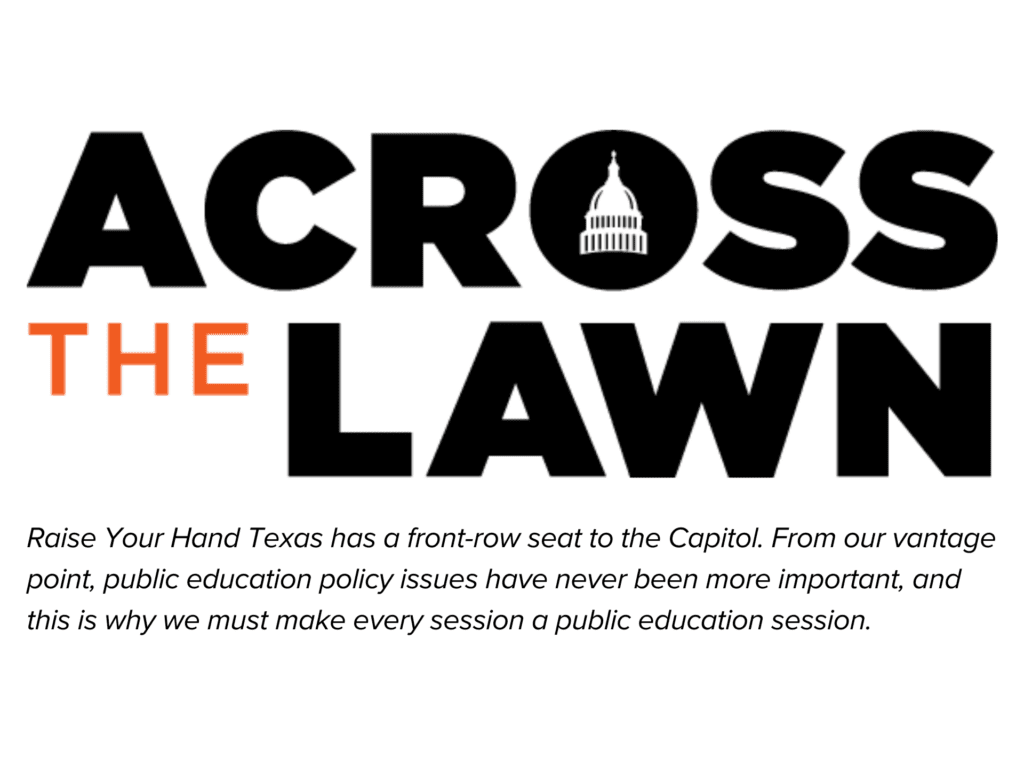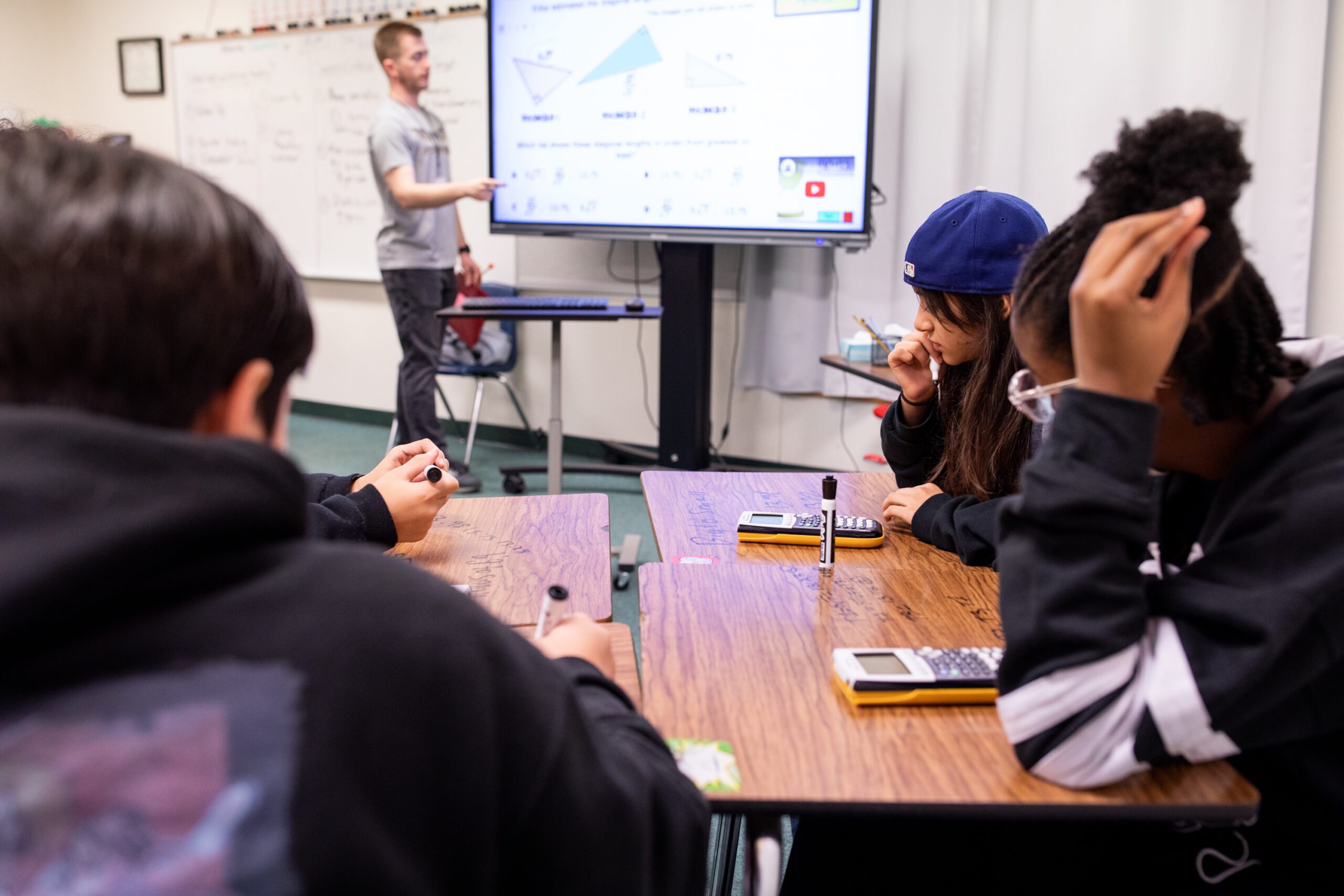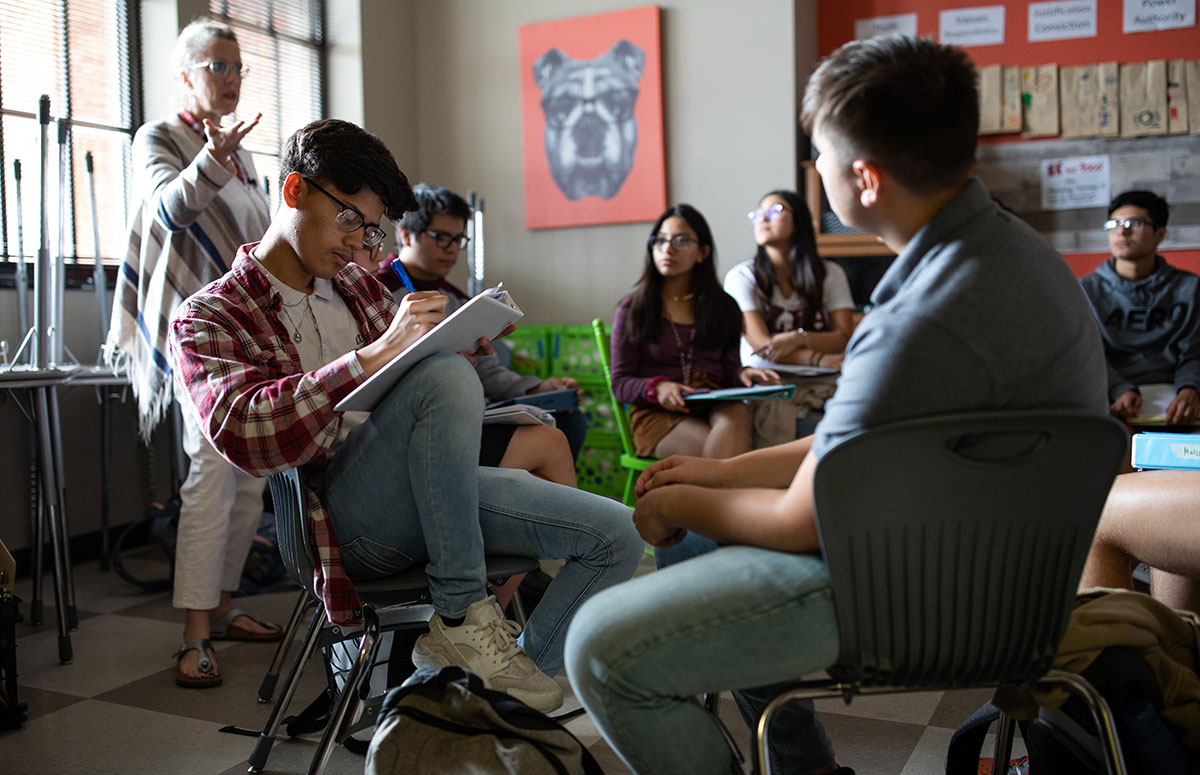
categories
Across the Lawn – June 5, 2025

June 05, 2025

One Thing to Do: Watch the Live Taping of our Latest Podcast Episode on YouTube
On June 3, the day after Sine Die, we recorded the latest episode of our Intersect Ed podcast, “Recap of the 89th Texas Legislative Session: A Historic Session for Public Education”.
Host Morgan Smith was joined by Jaden Edison, public education reporter with the Texas Tribune, Scott Braddock, editor at Quorum Report.com, Edward McKinley, Austin Bureau reporter for the Houston Chronicle and the San Antonio Express-News, and Bob Popinski, Senior Director of Policy at Raise Your Hand Texas. Together they discussed what has been hailed as Historic legislation for public education – including the $8.5 billion package in school funding and teacher raises and the passage of Texas’ new voucher program – as well as the inability of the legislature to agree upon and, therefore, change our assessment and accountability system.
1. 89th Texas Legislature Adjourns, Sine Die
The 89th Texas Legislature adjourned Sine Die (without a day) on Monday, June 2, 2025, wrapping up its 140-day regular session. Lawmakers passed over 1,200 bills, including more than 100 education-related measures that addressed school funding, teacher pay, special education reforms, parent and teacher rights, student discipline, and much more. With the Session complete, all eyes now turn to Governor Abbott, who has between 10 and 20 days to sign, veto, or allow bills to become law without his signature. The coming weeks will determine which pieces of legislation will officially become part of Texas law.
Raise Your Hand Texas would like to thank you for following our coverage on a weekly basis and engaging in the legislative process. We look forward to keeping you informed in the months ahead as the rulemaking and implementation process for major policy initiatives progresses.
2. Governor Abbott Signs House Bill 2 (School Funding) into Law
On June 4, 2025, Governor Greg Abbott signed House Bill 2 into law, accompanied by over 175 educators, students, and parents at Salado Middle School. The bill provides an $8.5 billion investment to public education, with over $3.7 billion dedicated to teacher pay increases, $850 million for updates to special education funding, $430 million for school safety, and $1.3 billion to help school districts with certain basic costs (utilities, insurance, transportation).
3. No Agreement Reached on Needed Changes to STAAR and School A-F Ratings
The legislation to eliminate the STAAR test and potentially add additional indicators to the school A-F accountability system died in the final days of Session after the House and Senate failed to reach a compromise by the Saturday, May 31, midnight deadline. House Bill 4 (HB 4) would have replaced STAAR with three shorter tests given throughout the year. Negotiations broke down over disagreements on the design of the new assessment (nationally normed-referenced versus criterion-referenced tests), additional indicators to measure school success, and how much authority the Texas Education Agency commissioner should have over the A-F accountability system.
4. What’s Next? A Statement from Raise Your Hand Texas’ Executive Director, Dr. Libby Cohen
Dr. Libby Cohen shared this statement with the media during a statewide press conference on Wednesday, June 4, 2025, alongside Raise Your Hand Texas’ Bob Popinski, senior director of policy, and Max Rombado, legislative director. Coverage of the event from KHOU-FM provides a comprehensive overview of the key points shared during this important briefing.
From Dr. Libby Cohen: “We knew the 89th Legislature would be a pivotal 140 days for our public schools. Indeed, lawmakers have repeatedly referred to this session as a ‘historic’ one for public education. It’s hard to disagree: after years of bipartisan opposition, Texas finally has a school voucher program, and the $8.5 billion school funding package includes the largest permanent pay raise the state has ever provided directly to public school teachers.
While history has been made, the story has yet to be written for students and families. Will Texas’ voucher program deliver real choice to parents looking for other education options? Or like other universal voucher programs, will it primarily benefit those who already have their children in private schools? Will the program remain limited in size and scope, or will it balloon in response to those who would see vouchers become a new entitlement? Lawmakers would do well to keep a close eye on the hard-fought safeguards included in the final version of SB 2.
On the school funding front, the legislature’s substantial investment is welcome news for cash-strapped school districts and teachers struggling to pay bills. But the best question is not whether or not $8.5 billion is a historically large sum, but whether or not it is enough to meet a historically challenging moment. $8.5 billion is not even half of the $19.6 billion schools needed simply to maintain their purchasing power from 2019. It will help, but it will not solve the budget woes of too many school districts.
And then there is the history that wasn’t quite made. In the final weeks of the session, it looked as though lawmakers might finally set aside the STAAR and an outdated accountability system in favor of nimbler testing instruments and more holistic measures of school quality. But HB 4 died in conference committee, leaving parents, students, and teachers still waiting for Texas to truly measure what matters in our public schools.
Texas has the resources to do better. Our state regularly tops lists for job creation, economic growth, and business investment, and even after the 89th session, continues to maintain a historically large rainy day fund. The best moments for public education this session came when lawmakers worked across the aisle and across chambers to respond to the concerns and hopes of their constituents. Raise Your Hand Texas thanks state leaders, members of the legislature, and their staffs for the long hours and grueling work that went into the 89th session. We are optimistic that, if we work together, this session will be historic not as an apex of legislative achievement, but as the beginning of a long and productive journey towards healthier and more robust public schools for all Texas kids.”



